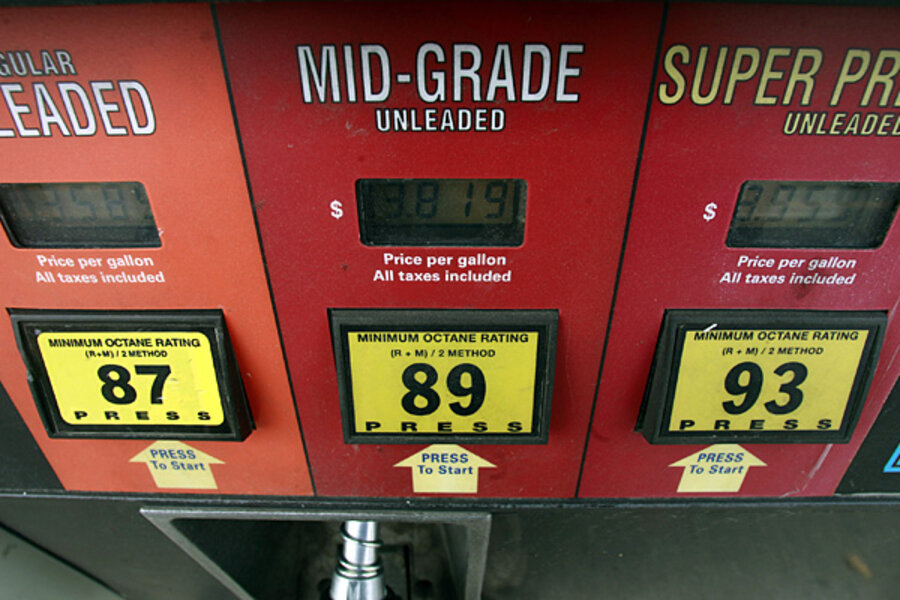Should you fill up with premium gas?
Loading...
You’re standing at the gas pump. There are multiple fuel types available – a low-cost type that’s marked with an 87 octane rating that also has 10% ethanol, a medium priced gas that’s 87 but more expensive than the ethanol gas, and a premium fuel that has a 91 octane rating. (Note that you may or may not have the ethanol gas in your area, but it’s certainly prevalent here in Iowa.)
Which is going to get you the most miles for your dollar? I certainly want to be able to make a quick decision at the pump that will maximize my miles per dollar that I get from the gas that I purchase.
There are a few simple things you can do to figure out which gas you should buy.
First, check out your car’s manual. Every car manual gives a recommendation for the minimum octane to use when fueling up the car. You should match that number, but it doesn’t really help to exceed that number.
The vast majority of cars sold today (I won’t say “all,” but it’s pretty close) are optimized to run on 87 octane fuel. If your manual suggests higher octane fuel, that’s what you should buy, of course, but you don’t gain any mileage benefit from buying higher octane fuel than what’s recommended in your manual.
That’s the general recommendation offered by the FTC on fuel efficiency, anyway, and it matches my own experience.
However, there is one situation where you should exceed what your manual is telling you: if your engine emits a regular “pinging” or “knocking” sound, it might be due to insufficient fuel octane. Of course, in that situation, I’d check with a mechanic before anything else.
So, we’ve eliminated the expensive fuel with the 91 octane rating. What about the other two?
The next step is to compare the prices of ethanol-added fuel and non-ethanol fuel. You’ll need to know the prices to figure out which is the best buy – but it’s not always the cheapest one.
The Department of Energy suggests that 10% ethanol blend fuels trim about 4% off of the gas mileage of the automobile. My experience actually pushes that percentage higher – according to my own measurements in our automobiles, doing a mix of city, interstate, and highway driving, 10% ethanol blend fuel drops gas mileage by 7-8%. Let’s say it’s 7.5% for the purposes of calculating this.
What I do is I take out my calculator on my phone and multiply the non-ethanol fuel cost by 0.925 (which is simply 1 minus 0.075 – the 7.5% indicated above) and see what the resulting number is. If that number is lower than the cost of the ethanol fuel, I buy the non-ethanol fuel. If the ethanol fuel is still cheaper, I buy the ethanol fuel.
Over time, you begin to have a pretty good sense for this, so I rarely have to actually calculate which is cheaper. It does seem to vary significantly from station to station – here in Iowa, stations typically advertise their ethanol fuel prices on their sign but often don’t mention the non-ethanol price.
Overall, I tend to buy the ethanol-added fuel because it’s still often cheaper per gallon, even after calculating the reduced efficiency. There are some stations and some times of the year when the non-ethanol gas is low enough that it’s worthwhile, however. Also, I’ve noticed in other states that the difference in prices makes the non-ethanol fuel a consistent bargain.
It’s a simple thing, but if you’re able to figure this out in a few seconds at the pump, you can easily reduce your fuel cost per mile on your vehicle, which can really add up over time.
The post Is Premium Gas Worth It? appeared first on The Simple Dollar.








